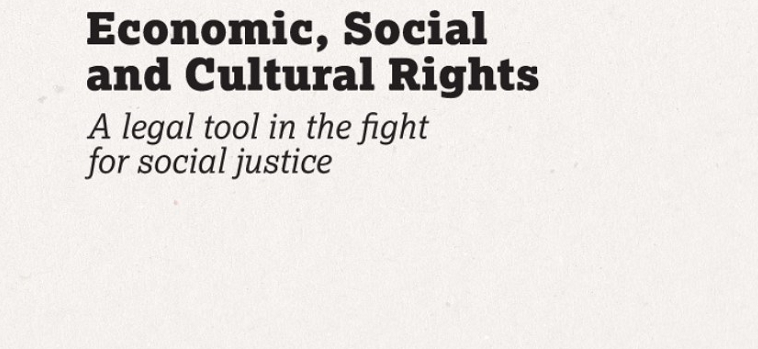CETIM focuses on the promotion and implementation of economic, social and cultural rights (ESCR). They are the backbone of human rights and a powerful tool for achieving a self determinated development model by peoples. This is particularly true for the most vulnerable and marginalised populations. Properly implemented, these rights contribute to the respect for human dignity and to the achievement of social justice. On the contrary, the violation of any of them can jeopardise the enjoyment of all the others.
The universality, indivisibility and interdependence of human rights are enshrined in international instruments. Yet, we are still a long way from their effective implementation for all, and ESCR are among the worst off. Indeed, the basic needs (food, water, health, housing, education) of a third of humanity are still not being met. In some respects, the situation has even deteriorated, including in the countries of the North. This is due to the fact that the policies adopted at economic level accentuate ESCR violations and cause
– increased poverty
– growing inequality across the world
– multiple crises (political, economic, financial, environmental, social and cultural).
By definition, human rights are designed to protect citizens from the arbitrary actions of the most powerful and their governments
The international health crisis linked to COVID-19 has only exacerbated this situation. It has also shown the importance of implementing public policies based on ESCR. In particular, the right to health, the right to housing, the right to food, the right to water, the right to work, the right to education and the right to social security.
But for human rights to be better respected, they must be known, they must be demanded and they must be enforced. However, victims are often unaware of their rights and of the mechanisms available to them for appealing (at national, regional or international level). States, which have an obligation to inform and educate their citizens about human rights, often fail in their duties.
The role played by civil society organisations and social movements in human rights education and training is therefore crucial
– to denounce human rights violations
– to contribute to the implementation of existing standards.
HUMAN RIGHTS COUNCIL 55th session 26 February – 5 April 2024 According to the International Labour Organization, more than 60% of the world’s working population, employed in the informal sector, is excluded from social security systems, even though this is a human right. The situation is no better in rural areas. The vast majority of […]
Continue reading
Health is a global issue. Against a backdrop of multidimensional crisis, spiralling inequality and the wholesale privatisation of public services, medical deserts are on the increase, even in countries with high-performance health systems. Care is often inaccessible to the majority of humanity. Some so-called “rich” countries recruit medical staff trained in less wealthy countries, thus […]
Continue reading
Following the request of the Human Rights Council (HRC), the Office of the United Nations High Commissioner for Human Rights organised a workshop to discuss “practical ways to further enhance and strengthen” the work of this body “in promoting and protecting economic, social and cultural rights within the context of addressing inequalities”.[1] CETIM participated in […]
Continue reading
PRESS RELEASE Lima, Geneva, Brussels, December 7, 2023 – On December 7, 2022, the impeachment and imprisonment of peasant president Pedro Castillo and the arbitrary takeover of vice-president Dina Boluarte, with the support of the fujimorista bench and other right-wing parliamentary groups, took place in Peru. An event that resurfaced the historical social fractures of […]
Continue reading
At a time when the world’s multidimensional crisis is plunging billions of persons into poverty, when almost half of humanity is unable to satisfy their essential needs, even as inequalities continue to grow steadily, the fulfillment of economic, social and cultural rights is more than ever urgent.
Continue reading
« Previous
1
2
3
4
5
6
…
34
Next »




